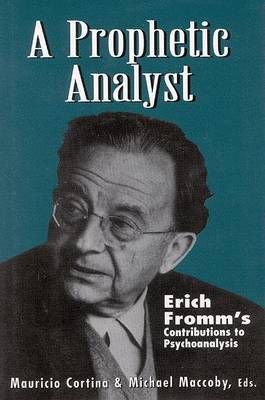The Library of Object Relations
1 total work
Before Erich Fromm there was 'one-person psychology.' Then, through a respectful, ambitious, but uncompromising revision of Freudian theory, Fromm helped lead us to our current relational perspective that considers the complexities of a 'two-person' interpersonal, contextual view of human functioning and therapeutic treatment. This book succinctly summarizes Fromm's main contributions to psychoanalysis, assessing their strengths and weaknesses and considering their utility in light of contemporary developments in psychoanalysis and related fields. It shows the vitality and relevance of Fromm's ideas for today's clinical and social problems.
